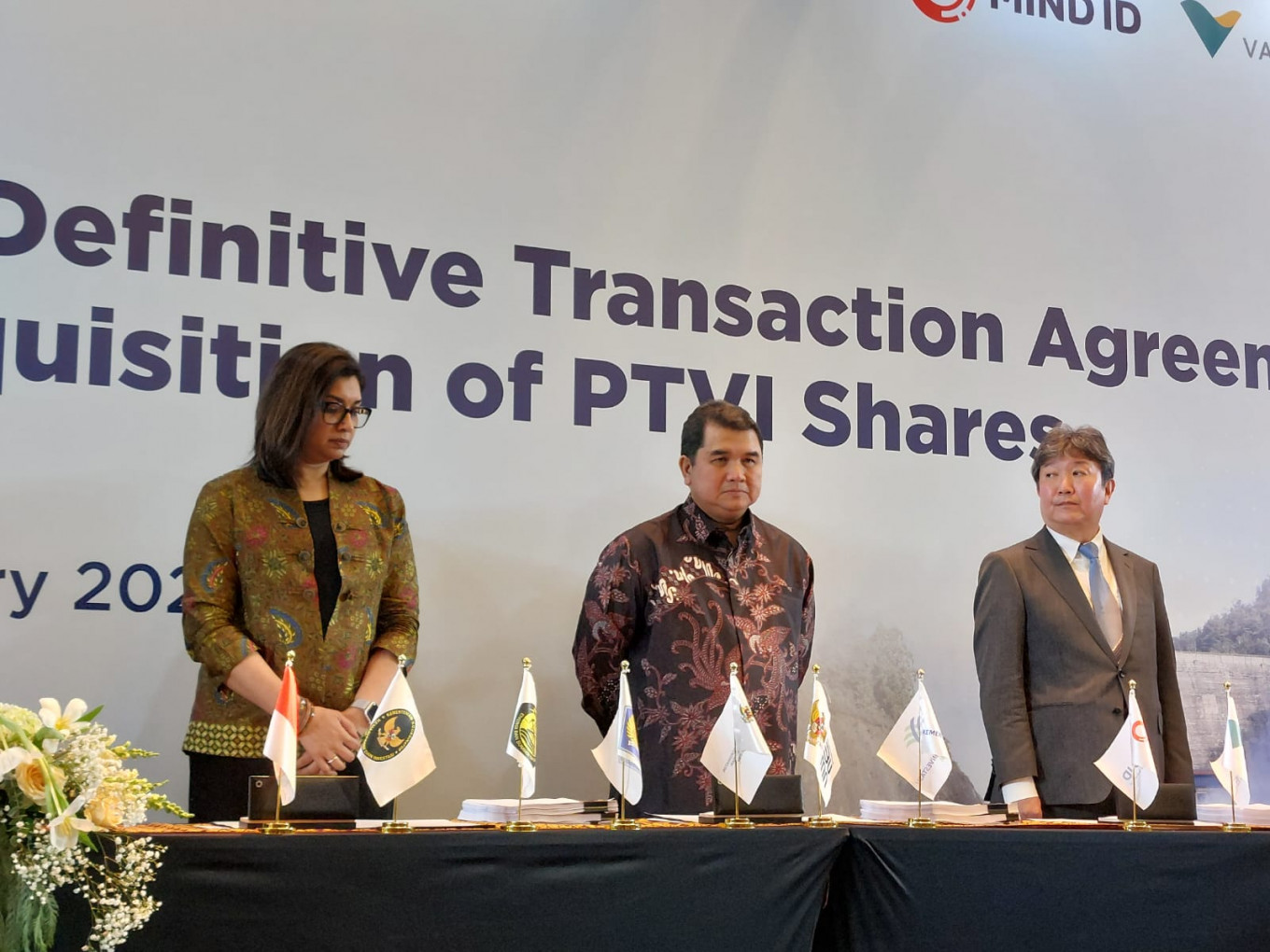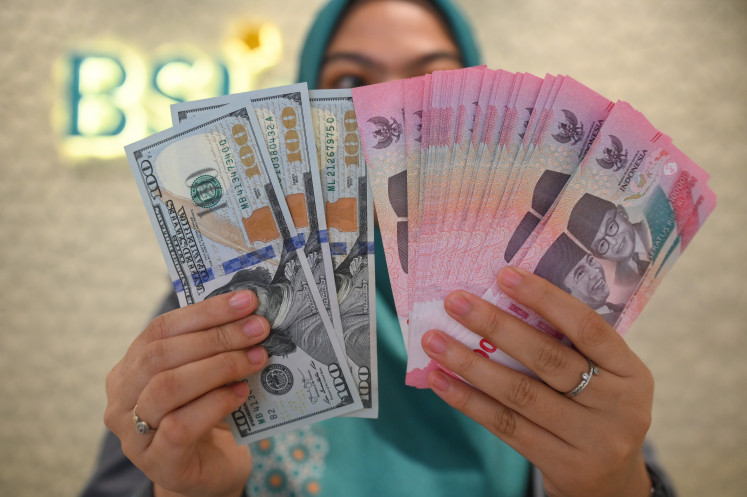Popular Reads
Top Results
Can't find what you're looking for?
View all search resultsPopular Reads
Top Results
Can't find what you're looking for?
View all search resultsNickel rush needs a rethink
Driven by low-cost production, especially because of cheap labor and poor environmental standards, Indonesia’s dominance has caused a rout in the global market with other miners deciding to cut production or even stop operations.
Change text size
Gift Premium Articles
to Anyone
T
he recent acquisition of nickel miner PT Vale Indonesia by state-owned mining holding company MIND ID has strengthened the Indonesian government’s foothold in the country’s nickel industry.
By owning 34 percent stake in the company, the government is now the majority shareholder and controls the country’s largest nickel concessions, which are located in Sulawesi.
The government’s control of the country’s nickel may be especially critical now amid the current global supply glut that has been blamed on the rapid rise of Indonesia’s nickel production, which has been boosted by the mineral downstreaming policy. Without thorough production planning, Indonesia may run out of nickel reserves before it achieves its ambition of becoming a global hub for the electric vehicle (EV) industry.
Reuters reported in February that nickel was trading around US$16,000 per tonne, far below a record high of $100,000 in 2022. The fall in prices occurred after production at dozens of smelters in Indonesia skyrocketed and contributed more than half of the total global supply, or around 3.4 million tonnes, last year. In 2020, Indonesian production only accounted for 30 percent of global supply.
Driven by low-cost production, especially because of cheap labor and poor environmental standards, Indonesia’s dominance has caused a rout in the global market with other miners deciding to cut production or even stop operations. BHP, for example, is considering shutting the only nickel smelter in Australia after operating at a loss.
The head of French mining company Eramet, Christel Bories, has predicted that Indonesia could account for over 75 percent of the world's highest class of pure nickel in five years. This would have significant consequences for competitors in other regions.
These trends may look good on the surface as Indonesia becomes a market leader in the global nickel industry, but it does not automatically make Indonesia a key EV player.
This is because most Indonesian smelters use Rotary Kiln Electric Furnaces (RKEF), which produce nickel pig iron (NPI) and ferronickel, both of which are used in stainless steel production, not EV batteries.
The NPI and ferronickel account for three-quarters of the country’s intermediate nickel exports, according to the Energy Shift Institute think tank, and most of them go to China. With its current production capacity, it is expected to produce less than 0.4 percent of the world’s total EV battery capacity this year, a share that may last until 2030.
Unless Indonesia builds more hydro-metallurgical high-pressure acid leaching (HPAL) smelters that can turn low-grade nickel into products used in batteries, such as mixed hydroxide precipitate (MHP), nickel matte and nickel sulfate, it is unlikely that Indonesia will shift from its current trajectory of becoming a major supplier of the stainless-steel industry.
Indonesia could maintain its smelters’ production capacity at the current rate and make a lot of money, but the benefit may be short-lived. In the long run, the nickel reserves may be depleted before the local EV industry can take off. And when that happens, the mines outside of the country that have been shut during Indonesia’s nickel bonanza, may reopen and take over as the major producers.
In addition to opening new mining sites or constructing smelters to produce low-grade nickel, the government may also want to accelerate the construction and operation of EV battery plants, including developing non-nickel battery technologies such as lithium iron phosphate (LFP).
It may also be good to strengthen partnerships with other countries with major nickel reserves such as Australia, Brazil, Russia and New Caledonia, so that these producing countries can have better bargaining positions amid increasing demand for the mineral.
The idea to establish an OPEC-style organization for nickel was once introduced by President Joko “Jokowi” Widodo and Investment Minister Bahlil Lahadalia. Such an organization could help producing countries better coordinate supply and prices. Perhaps it is a good time to carry on with the plan.










